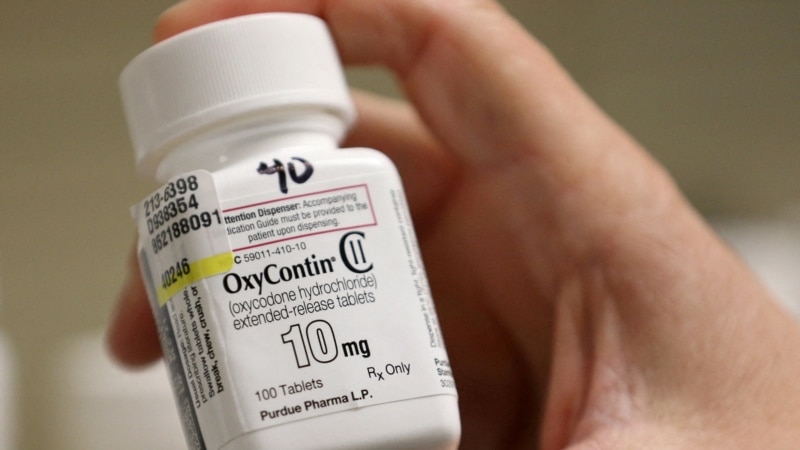Purdue Pharma secures litigation freeze after US Supreme Court ruling

New York — Purdue Pharma on Tuesday received U.S. court approval for a 60-day freeze on lawsuits against its owners — members of the wealthy Sackler family — in its first court appearance since a landmark U.S. Supreme Court ruling upended its bankruptcy settlement.
U.S. Bankruptcy Judge Sean Lane granted an injunction at a court hearing in White Plains, New York, saying that a litigation cease-fire will give Purdue a chance to renegotiate a comprehensive settlement of lawsuits alleging that its painkiller OxyContin spurred an opioid addiction crisis in the U.S.
The U.S. Supreme Court ruled on June 27 that Purdue Pharma's bankruptcy settlement cannot shield the Sacklers, who did not file for bankruptcy themselves, over their role in the nation's deadly opioid epidemic.
The ruling sent Purdue back to the drawing board after nearly five years in bankruptcy and imperils billions of dollars in funding that the company and the Sacklers had promised to pay toward addressing the harms from the crisis.
Lawsuits against Purdue and Sackler family members by state and local governments, as well as by individual plaintiffs, have accused them of fueling the opioid crisis through deceptive marketing of its pain medication. The company pleaded guilty to misbranding and fraud charges related to its marketing of OxyContin in 2007 and 2020.
Purdue's bankruptcy has stopped the opioid lawsuits from proceeding against the Stamford, Connecticut-based drugmaker since 2019, and Purdue has extended that legal protection to the Sacklers, as well.
Purdue's attorney, Marshall Huebner, said the company will engage in "a high-speed, high-stakes mediation" with the Sacklers, state and local governments and other stakeholders. Protecting the Sacklers during a "modest" 60-day negotiating period will give Purdue a real chance to negotiate a new bankruptcy settlement and put money toward stopping opioid overdoses and treating addiction, Huebner said.
"Every single day of delay continues to come at a tragic, tragic cost," Huebner said.
Several stakeholders expressed hope for a settlement but said mediation should not be extended beyond the 60-day schedule proposed by Purdue.
"It is essential to all parties in this case that we bring this five-year Chapter 11 case to a conclusion," said Kenneth Eckstein, an attorney representing a coalition of state and local governments.
During the hearing, Lane also appointed two mediators to aid settlement talks, including retired bankruptcy judge Shelley Chapman, who brokered a previous deal under which the Sacklers agreed to pay up to $6 billion to settle the opioid lawsuits. Eric Green will serve as the other mediator.
If mediation fails, Purdue has said a court-appointed committee representing its creditors should be allowed to sue the Sacklers over claims they drained more thabn $11 billion from the company and that their conduct made Purdue liable for other lawsuits.
The Sacklers have said the creditors' proposed litigation is counterproductive and based on "factual errors." Members of the family have denied wrongdoing and would fiercely oppose any litigation if the settlement talks break down, their attorneys said.
"No one is assured of a recovery in this court or any other court," said Gerard Uzzi, an attorney representing members of the Sackler family.
Purdue's previous bankruptcy settlement was supported by attorneys general from all 50 states, local governments and most of the individual opioid victims who voted on it.
But it has also had detractors such as Carrie McGaha, who has had repeated overdoses and said Tuesday that individuals have been placed at the "bottom of the heap" throughout Purdue's bankruptcy.
